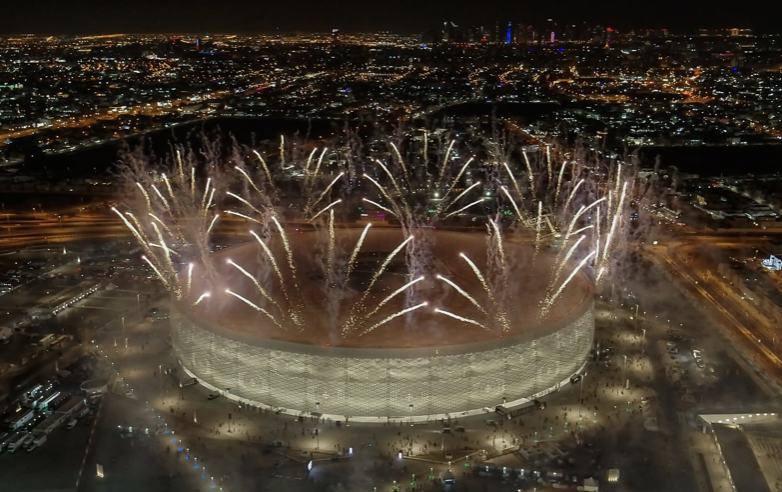By Paul Nicholson
January 11 – The Asian Cup 2023 that was originally scheduled for last summer in China but was switched Qatar after the Chinese pulled out, opens in a day’s time and is pretty much bursting to exit the starting gates.
At a press conference Qatari organisers emphasised that the Asian Cup builds on the legacy of Qatar’s hosting of the 2022 World Cup.
Seven of the nine stadia to be used staged matches at the 2022 World Cup, while the transport infrastructure will see all nine stadiums connected with a seamless public transport network. The farthest distance between any two stadiums is 75kms.
“Qatar is ready to welcome the best teams from Asia to what we hope will be the best ever edition of the AFC Asian Cup. Our stadiums and sporting infrastructure are set to deliver a memorable tournament to players and fans,” said Hassan Al Kuwari, marketing and Ccommunications executive director of the Local Organising Committee.
“Just over a year ago, Qatar hosted an exceptional World Cup – the first in the Middle East and Arab world, delivering a meaningful and long-lasting legacy. The Asian Cup builds on this sporting legacy and reaffirms Qatar’s place as a global sporting capital.”
The Asian Cup was first expanded to 24 teams in 2019 in the UAE. The increased scale of operations came with increased attention as the tournament showcased the remarkable diversity of culture and football within the AFC’s region.
The second edition is looking to build on the success of that platform which established the AFC’s competition as one of the world’s major international football tournaments. It will also finally bring to a close a cycle of AFC championships that were interrupted and threatened by the impact of Covid.
The AFC would argue that it has come back better, bigger and stronger. Certainly the evidence so far promises the tournament will be a celebration of football in the region, and for Palestine in particular that there is still a proud nation beneath the Israeli military pummelling of Gaza.
Palestine will be everyone’s favourite second team at the tournament and probably the favourite team of everyone else in the world outside of the region.
Organisers say more than 900,000 have been sold so far, with fans from Qatar, India, Saudi Arabia, Jordan, Philippines and Indonesia leading the ticket buying nations. Group stage tickets start from as low as QAR 25 ($6.80).
This is a tournament that is planned to be affordable and inclusive. A free shuttle service will be available from Lusail, Al Wakrah, Free Zone and Qatar University stations to Al Bayt, Al Janoub, Al Thumama and Abdullah bin Khalifa stadiums respectively. Planning is focussed on making the experience pleasurable and hassle free.
All of this will be helpfully facilitated by 6,000 volunteers of 107 nationalities at the heart of tournament operations.
“Hosting mega-sporting events of this scale is more than just about the football. The Asian Cup will give fans from across the continent the opportunity to learn about new cultures, build life-long friendships and create meaningful memories,” said Al Kuwari.
A total of 51 matches will be played across nine stadiums from 12 January to 10 February, 2024. Hosts Qatar will open the tournament at the iconic Lusail Stadium, which hosted the final of the 2022 World Cup.
AFC president Shaikh Salman bin Ebrahim Al Khalifa has expressed confidence that the event is ready to go off without a hitch and will be the “grandest ever AFC Asian Cup to date.”
“We are all aware that this is the shortest ever runway that we have had to organise the pinnacle stage of Asian men’s football. But in another remarkable display of Asian football unity, we have shown the world that we are ready to stage an exceptional tournament,” said Salman.
“We are now in touching distance of hosting our best-ever men’s showpiece in Asian football history. I am confident that we will witness inspiring performances that will showcase the immeasurable progress of Asian football.”
The wider geo-political context will also surely showcase stories triumph against adversity, and hopefully of humility and compassion over hatred. The next month guarantees passion and heartbreak and 51 games of football. It won’t stop war, and football isn’t about bringing peace. But the game has a commonality wherever it is played. And that generates respect, brotherhood and understanding. Those three things feel in desperately short supply at the moment.
Perhaps in this tournament more than any other played before it, more than one nation has the opportunity to come out of it on February 10 as a winner.
Contact the writer of this story at moc.l1739417054labto1739417054ofdlr1739417054owedi1739417054sni@n1739417054osloh1739417054cin.l1739417054uap1739417054

